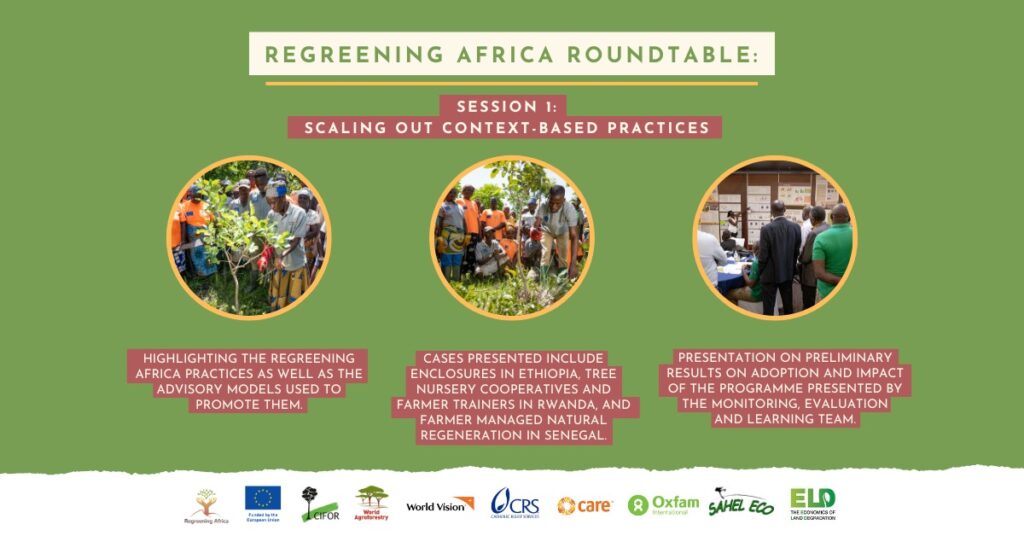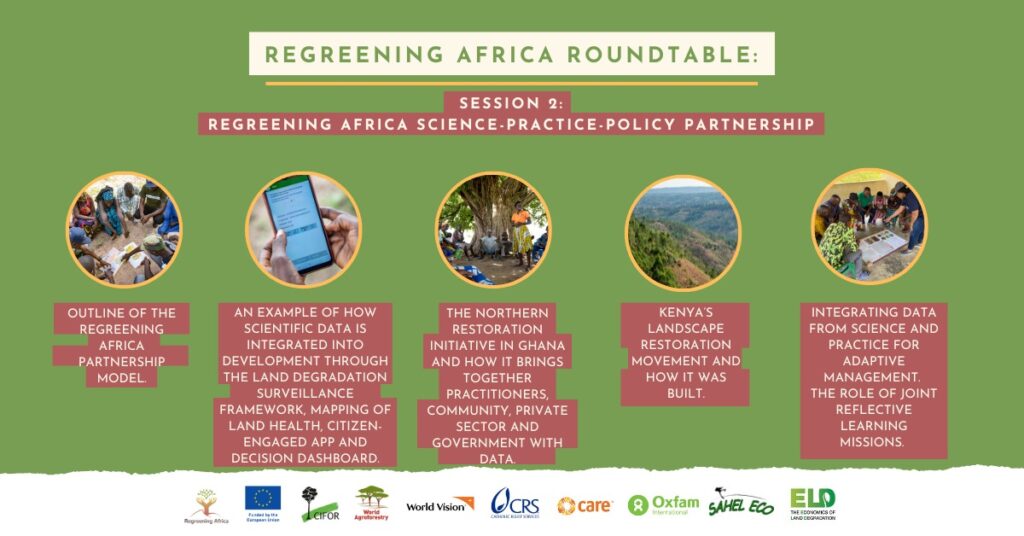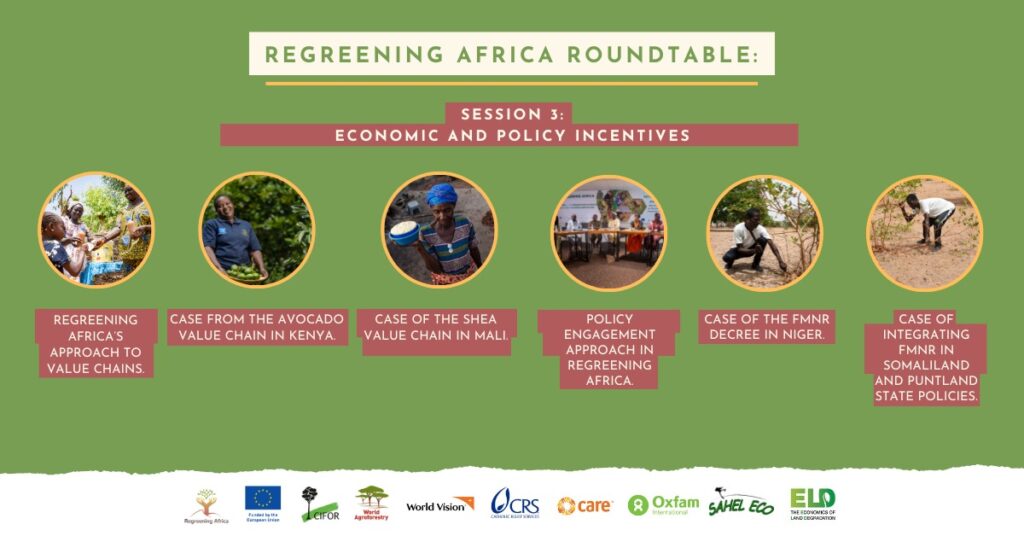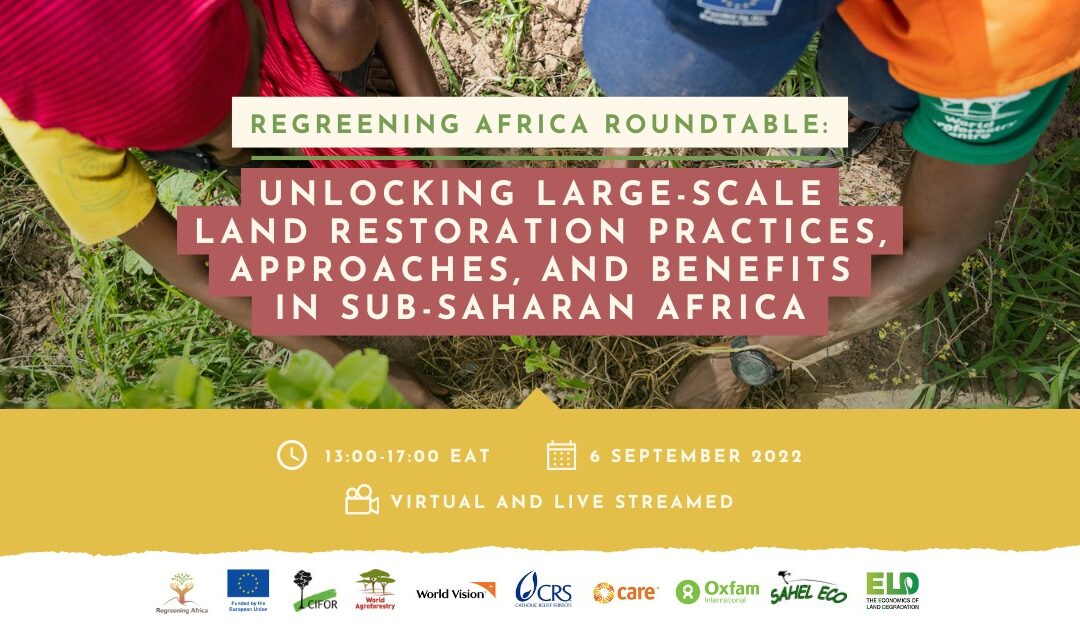ROUNDTABLE RESOURCES
Regreening Africa is an ambitious programme running from 2017-2023 that aims to reverse land degradation on 1 million hectares across 8 countries in sub-Saharan Africa. Regreening Africa integrates trees into crop and communal areas along with complementary restoration practices and approaches to enhance inclusion, value chains, policy, and local governance. Five years into implementation, Regreening Africa would like to share its experience and lessons through a roundtable event with all partners.
The Regreening Africa Roundtable will have three sessions:
Session 1: Scaling out context-based practices
What practices will work where and how can we encourage widespread uptake? These are the questions to be addressed in this session as we investigate the many sustainable land management practices in the project and the approaches to scale them out. We will also investigate the impact of both the advisory models and the practices through preliminary impact evaluation results.

Session 2: Regreening Africa science-practice-policy partnership
Integrating data from science and practical experience is critical for improving our planning, implementation, and the policy environment. In this session we explore how community, government, scientists, and development partners worked together and what they have been able to create. We explore examples of integrating scientific data from multiple sources, how partners have been brought together to create initiatives and movements and how we consistently reflected, learnt, and improved the programme over time.

Session 3: Economic and policy incentives
Incentives are known to be a critical driver of landscape restoration and any sustainable land use transition. Farmers and pastoralists are the ones who bring about change on the ground and they must see the benefits. Incentives can come in different forms, but two critical incentives are linked to livelihoods, the economic benefits and to ownership and rights. In this session we explore two examples of value chains and cases of where engagement with policymakers has made practices more accepted and where tree use rights have been enhanced.


